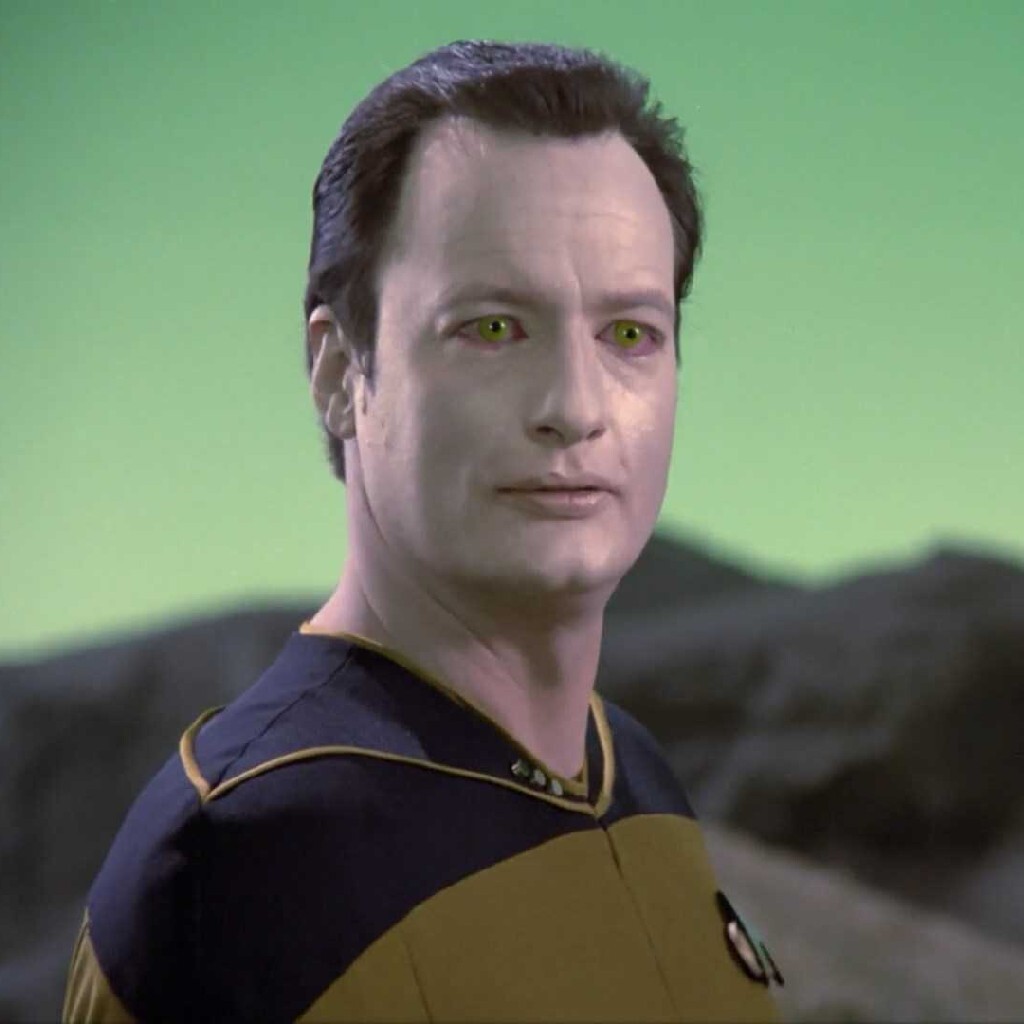For me it is the fact that our blood contains iron. I earlier used to believe the word stood for some ‘organic element’ since I couldn’t accept we had metal flowing through our supposed carbon-based bodies, till I realized that is where the taste and smell of blood comes from.
Let’s stick with the iron in your hemoglobin for some more weirdness. The body knows iron is hard to uptake, so when you bleed a lot under your skin and get a bruise, the body re-uptakes everything it can. Those color changes as the bruise goes away is part of the synthesis of compounds to get the good stuff back into the body, and send the rest away as waste.
In the other direction, coronaviruses can denature the iron from your hemoglobin. So some covid patients end up with terrible oxygen levels because the virus is dumping iron product in the blood, no longer able to take in oxygen. I am a paramedic and didn’t believe this second one either, but on researching it explained to me why these patients were having so much trouble breathing on low concentration oxygen… the oxygen was there, but the transport system had lost the ability to carry it.
The body knows iron is hard to uptake
I had to take iron supplements in the past because my periods were so bad that I would lose my vision and pass out from loss of blood.
I don’t have iron issues so I haven’t completely fact checked this, but I have read in various places that using cast iron skillets to cook with does add more iron to your foods to help supplement.
There are also iron “fish”, or fish shaped blocks of iron, that can be used while cooking which do the same thing!
Before using cast iron daily, when I donated blood my iron levels were regularly at the lowest allowable limit or sometimes too low to donate. Once I started cooking with cast iron, I started getting comments about how great my iron levels are every time I donate.
That is super interesting information and kind of makes sense with the seasoning involved.
But I recently learned you can get different enamel types that you don’t have to season.
I would think an enameled skillet would not provide any extra iron; the glass that the enamel is made of forms a barrier between the iron and everything else. That’s nice because you don’t have to worry about it rusting any more, but it also means no iron in your food.
Yeah, its like a trade off. I’m uneasy about having to season a pan for some reason. I’m pretty sure I have OCD and if I can’t clean a dish the way I clean my other dishes it bugs me to some extent.
Ah gotcha, I can understand how that might be a thing; cat iron is definitely something you treat differently than other dishes. There’s a whole fascinating level of nerdery to proper seasoning, but it’s definitely special cookware that doesn’t fit the usual patterns.
yeah, for some reason it gets to me that there is something left on the pan on purpose. My brain just wants me to scrub it all off.
Please tell us more or other things!
A day on Venus is longer than a year on Venus. One day takes 243 Earh days, while a year takes 225.
Maybe it’s not “well known”, but still interesting in my opinion.
I mentioned this one to my friends the other day and it took so much convincing before they actually believed me! Definitely an interesting one. Venus also spins the opposite direction to all the other planets in the solar system, meaning the sun rises in the west and sets in the east.
I get people telling me “no, that’s impossible” every time I mention this fact.
“Search your feelings, you know it to be true”
Ok hold up so the way I’m understanding this is that its tilt (day) is slower than it’s rotation around the sun (year). Is that right or am I way off?
Yep, and as a result, the ‘movement’ of the sun across the Venusian sky during a day seems to change direction (I think?)
You’re close. Not the tilt of its axis, but its rotation around its axis (day) is slower than its rotation around the sun (year).
Earth’s axis is tilted at about 23 degrees, which causes the seasons. Venus, by contrast, is tilted only about 2.6 degrees, and thus basically doesn’t have seasons in a comparable way.
Earth’s axis does very slowly wobble around (precession). Over long enough time scales, this affects the seasons, and it means the North Star has not always been aligned with Earth’s North - once, North pointed at a patch of black sky and the North Star was just another star appearing to rotate around that arbitrary point.
I’d imagine Venus’s axis might also wobble at least somewhat, but I haven’t actually looked into this at all.
Thinking about this sent me down a rabbit hole because the day and year lengths are so extremely close to each other, and Venus rotates around its axis clockwise (unlike the other planets) while spinning around the sun clockwise, and its tilt is so slight… so as it spins around the sun, it rotates just enough to keep one side facing the sun almost all the time. I ended up googling whether it was tidally locked, like the moon is to Earth (such that we only ever see one side and it never changes) - and apparently it would be, but its atmosphere is so wild that it prevents tidal locking. But it almost is. It kinda has a dark side, and a light side, like the moon, but there’s just enough mismatch between the yearly rotation the axial rotation that the side facing the sun changes slowly. This is the first article I found.
From that article, it seems like the daylight hours you’d experience standing on the surface of Venus would be 117 Earth days of light, before it got dark again. So the sun would rise, and then you’d have about half a Venus year (aka about half a Venus day, too) of daylight before you’d see night again. And then it’d be night for the rest of the year. But still scorching hot because atmosphere.
Anyway this is blowing my mind a bit. I feel like I should have known this - I used to be obsessed with astronomy when I was little. Maybe I knew it once and forgot. I don’t know. But dayum. Planets are cool.
Yeah the Venus makes a lap around the sun in less time than it does a rotation around itself relative to said sun’s position in its sky.
I’ve seen this fact somewhere before, but I still am unable to grasp it in my mind
Short: It completes a full 360° of the sun before the planet itself does a full 360° spin.
A few sentences longer:
In planet Earth human terms, we have defined one day as “how long it takes the planet to do a full 360 degree rotation”. Example: You spin a basketball on your finger and it does one full rotation.A year to us is “how long it takes the planet to go around the sun”. Example: You hold a basketball out in front of you and you do one full rotation.
Now, to confuse people further, read about the difference between a solar day and a sidereal day.
Planets and stars and galaxies are there. You can see them because they’re right over there. Like, the moon is a big fucking rock flying around the earth. Jupiter is even bigger. I see it through a telescope and think “wow that’s pretty,” but every once in a while I let it hit me that I’m looking at an unimaginably large ball of gas, and it’s, like, over there. Same as the building across the street, just a bit farther.
The stars, too. Bit farther than Jupiter, even, but they’re right there. I can point at one and say “look at that pretty star” and right now, a long distance away, it’s just a giant ball of plasma and our sun is just another point of light in its sky. And then I think about if there’s life around those stars, and if our star captivates Albireoans the same way their star captivates me.
And then I think about those distant galaxies, the ones we send multi-billion dollar telescopes up to space to take pictures of. It’s over there too, just a bit farther than any of the balls of plasma visible to our eyes. Do the people living in those galaxies point their telescopes at us and marvel at how distant we are? Do they point their telescopes in the opposite direction and see galaxies another universe away from us? Are there infinite distant galaxies?
Anyway I should get back to work so I can make rent this month
If I point my finger at one of those galaxies, there’s more gas and shit between us within a hundred miles of me than there is in the rest of the space between us combined
What’s even more fascinating is that most of the stars we see in the sky are afterimages of primitive stars that died out long ago yet they shine as bright as the stars alive today
That doesn’t seem right. The galaxy is only 100,000 light years across (give or take) and the life span of stars is measured in billions of years.
Most of the stars we see are in our galaxy, so at most, we are seeing them as they were 100,000 years ago, which means that the vast majority of them will still be around, and looking much the same as they did 100,000 years ago.
I seem to have made a mistake then. Thank you for correcting it.
Thinking about it further, if we’re talking about stars that we can see with telescopes, Hubble, James Webb etc, then you’re on the money. Stars in remote galaxies far outnumber the ones in our galaxy and show us glimpses of the early stages of the universe. And many of those stars are long gone
Not too sure where you got that number from. From what I can find, the radius of the observable universe is estimated to be about 46.5 billion light-years.
Edit: I see now that you are talking Galaxy. That’s different.
The original comment was about stars we can see in the sky, so I was assuming naked eye
In the same vein, I like to remind myself that every field in physics is literally happening all around me, right now, and it always has been, in fact, I’ve never seen anything without these invisible fields in it and for some reason, that really makes me super aware of our place in the order of magnitudes.
It’s wild we can see so much further down than up.
I mean, you may think it’s a long way down the road to the chemist’s, but that’s just peanuts to space.
People don’t realize how crazy it is to have a moon orbiting earth
A moon isn’t that strange, our moon is.
First, it is massive compared to Earth. The mass of the Moon is so large that it messed with definitions of planets and plutinos.
Second, the Moon’s size and distance from Earth is a near match for the Sun’s, which is really rare.
And for a strange fact, the Moon is about as reflective as worn asphalt. The Moon looks white in photos of just itself, but it is a dark grey when in photos with Earth.
I can really relate to this. I remember a weird night in my teens where I must’ve spent at least an hour staring out of my bedroom window at the moon, because really for the first time I’d had the exact same thought. It’s right there. It’s so easy to get desensitised to that and to just think of it all as an image projected on the sky. The thought has never really left me and even now I still linger on the moon every time I see it and try to acknowledge that it is a 3 dimensional object lol.
The fact that the moon is tidally locked probably doesn’t help, if it rotated it would be easier to see it as a sphere instead of an image
“Just a bit farther” is quite the understatement!
“I mean, you may think it’s a long way down the road to the chemist’s, but that’s just peanuts to space.”
First time I saw Jupiter through a telescope I got hit hard by the feeling: “Oh shit, that giant monster is real”.
Samesies. You aren’t alone. We have a support group.
Not exactly bizarre, but it’s fun to learn that the delicious fragrance of shrimps and crabs when cooked comes from chitin, and chitin is also why sautéed mushrooms smell/taste like shrimps.
And since fungi are mostly chitin, plants have evolved defenses against fungi by producing enzymes that destroy chitin, which is how some plants eventually evolved the ability to digest insects.
EDIT: a previous version of this post mistakenly confused chitin with keratin (which our fingernails are made of). Thanks to sndrtj for the correction!
Chitin is not produced by mammals.
Fingernails are composed primarily out of keratin (same as hair and skin).
Oops! I stand corrected.
Wow I didn’t know this and I’ve never felt a similarity between seafood and mushrooms either in flavour or smell. But, still a cool fact.
It’s one of those things that feels really obvious if you cook a lot of east/south Asian dishes - shrimp sauce and mushroom soy sauce have a pretty similar aftersmell to them because they’re so concentrated
Huh. Oddly I am allergic to shrimp and lobster, but love mushrooms. To me they don’t smell the same though. Though this fact probably explains why veg oyster sauce is mushrooms.
There is about 8.1 billion people in the world. Assuming romantic cliches to be true and that we all have exactly one soulmate out there, we would have a very hard time sifting them out. If you were to use exactly one second at meeting a person it would take you 257 years to meet everyone alive on earth at this moment, which due to human life span being significantly shorter and the influx of new people makes the task essentially impossible without a spoonful of luck. Moral of the story: If you believe you have found your soul mate, be extra kind to them today.
Soul mates are made, not found. You get with someone compatible to you, and through the sharing of experiences and affection, if nothing goes excessively wrong, they become unique for you.
Definitely agree and beautifully put :)
Soul mates are made, not found. You get with someone compatible to you
That catch is, you need to find that someone in the first place, and that takes a bit of looking around. So in effect, soul mates are found.
It gets much easier once you factor in that you, yourself, aren’t static and constant. The task isn’t to find someone capable of becoming perfect for you, it’s finding someone whose compatibility and willingness when taken into account with your own offers a fair chance to grow into a symbiotic relationship.
You find a partner, who then MAY become a soul mate
it would take you 257 years to meet everyone alive on earth at this moment
Sounds like a terrible sorting algorithm /jk
I mean, you should be extra kind to most people most of the time. Comunism begins at home.
If you were to use exactly one second at meeting a person it would take you 257 years to meet everyone alive on earth at this moment
Well I don’t need to meet everybody. There’s no need to meet anyone who doesn’t match my sexual preferences, so that’s half right there. Then we can also cut everyone who’s sexual preferences I don’t meet, as well as anyone outside of a given age range (most of the people on earth are much younger than me and would be inappropriate for me to date). We can probably get that down to about 50-60 years. (At one second per person).
The thought experiment was just an attempt to show how hard it is to wrap our minds around big numbers. Even a tangible number such as the amount of people in the world.
Calcium is a metal. We have metal bones.
From Wikipedia on bones:
Bone matrix is 90 to 95% composed of elastic collagen fibers, also known as ossein,[5] and the remainder is ground substance.[6] The elasticity of collagen improves fracture resistance.[7] The matrix is hardened by the binding of inorganic mineral salt, calcium phosphate, in a chemical arrangement known as bone mineral, a form of calcium apatite.[9]
So the statement is a bit faulty, not only because of the relative low amount of calcium in our bones, but also because it appears as a mineral. We distinguish between salts and metals because of their chemical properties being quite different (solubility, reflectiveness, electrical conductivity, maleability and so on).
Edit: I do realize the point of the comment was not to be entirely factual, so if I am allowed as well I would say science is pretty metal.
We also distinguish between metals and non-metals by field of study. Ask an astronomer which elements are metals sometime.
How so? I thought they were mostly determined by their positions in the table of periodic elements.
Lol, they are. In astronomy anything heavier than Helium. is considered a metal.
Well TIL. It makes sense that from an astronomical perspective the use of metal as a qualitative distinction of material properties makes less sense than as a distinction of mass.
Thanks for the reality injection!
The statement was glib but even the partial truth of it made me wonder when I first learned it.
By the sound mine make I would have thought free jazz.
Oh my… I refuse to accept this as reality
We’re all organically powered metal meat machines? 😭
The meat is suffused with more metal throughout it
In the same sense that we contain a massive volume of gas, because there is a lot of hydrogen in our bodies. Yes, hydrogen is a gas, and yes, there is a lot of it on our body. But it’s bound, so it doesn’t count.
It would be more accurate to call it stone than metal, because the calcium in our bones is also bound to other elements, which means it does not exhibit its usual metal characteristics.
They sure don’t feel metal.
The combustion engine. I know technically it’s not but ultimately we as humans found a way to harness the power of explosions and make them do our bidding. honestly, one of humanity’s finer achievements. yes, it’s not without its barbs like emissions, but that’s a small price to pay for the workload any vehicle can provide.
Time relativity always boggles my brain, I accept the fact but I find crazy that if I strap my twin and his atomic clock to a rocket and send them out to the stratosphere at the speed of light, when they return he’ll be younger than me and his clock will be running behind mine. Crazy
It’s even crazier because you don’t need to reach the speed of light. It’ll happen in a smaller degree for any speed. Even in mundane conditions.
For example, if your twin spent four days in a 300km/h bullet train, for you it would be four days plus a second.
Usually this difference is negligible, but for satellites (that run at rather high speeds, for a lot of time, and require precision), if you don’t take time dilation into account they misbehave.
(For anyone wanting to mess with the maths, the formula is Δt’ = Δt / √[1 - v²/c²]. Δt = variation of time for the observer (you), Δt’ = variation of time for the moving entity (your twin), v = the moving entity’s speed, c = speed of light. Just make sure that “v” and “c” use the same units.)
Yes I knew about that and I’m glad that doesn’t make it crazier for me, instead it makes it easier to accept. If it were something that happened only after hitting some arbitrary speed value I’d be a lot more mentally damaged
To be fair the only ones that don’t get mentally damaged at all with this stuff are theoretical physicists. After all being crazy makes you immune to further madness.
I wonder how long it would have taken for us to figure out time dilation in Einstein hadn’t predicted it. I wonder if it would have taken until we observed it with satellites.
Without Einstein, I think that the discovery of time dilation would be delayed by only a few years. There were a lot of people working in theoretical physics already back then; someone else would inevitably dig through Lorentz’ and Poincaré’s papers, connect the dots, and say “waitaminute time might be relative”. From that, time dilation is a consequence.
In special I wouldn’t doubt that Max Planck would discover it.
I’m saying that because, in both science and engineering, often you see almost concurrent discoveries or developments of the same thing, because the “spirit of a time” makes people look at that aspect of reality or that challenge and work with it. The discovery of helium and the development of aeroplanes are examples of that.
IIRC the orbit of Mercure doesn’t work with Newton Model, and astronomers were predicted the discovery of Vulcain a small planet between Mercure and the Sun. So a new model had to be invented since Vulcain couldn’t be found.
We would have definitely figured it out once we built GPS, since you need to account for relativistic effects there.
deleted by creator
Also the idea that light is both a particle and a wave always mess with my head because I wanted to know why does it decide to change and when? And the answer is that light is always a particle and always a wave at the exact same time.
It is a wave particle.
And it is possible from light alone to build both an electron and a positron as demonstrated in a 1999 laser science experiment in New York.
I usually interpret this as behaviour: photons are not “particles” or “waves”, photons are photons. They just behave as waves and as particles, depending on how you’re looking at them.
Note that even things with a resting mass (like you or me) are like this, too. It’s just that, as the mass increases, the wave behaviour becomes negligible.
deleted by creator
This doesn’t make it any less crazy
The crazy thing is there are actually two double slit experiments, and that light can tell whether or not you are actively observing it or not, and decides whether or not to actually exist as a wave or particle.
I heard from someone I respect irl that these experiments were debatable, but I can’t personally hold an argument about it.
The part that I understand in the intellectual sense, because I know or at least used to know how it follows from the math, but which just doesn’t feel like it should be the case, is the whole “relativity of simultaneity” aspect of it. That there isn’t an objectively true order in which events happen in, if the events in question aren’t linked by cause and effect. That is to say, it is possible for one person to see an event A happen before another event B, a second person to see the two happen at exactly the same time, and a third to see event B happen first and then event A, and for all three of them to be equally right. It just feels like, on some level, there ought to be one objectively true order to time, a single valid timeline that all events can be placed in relative to eachother, and for time not to work that way feels so absurd as to not even be able to articulate why the idea feels wrong.
deleted by creator
I see another veritassium fan here maybe?
From what I understand, you are always travelling at the speed of light through space/time, but when you move at high speeds through space that shifts the proportion of your speed out of the time dimension. And a photon travels only through space, experiencing no time between the time it was emitted and the time it was absorbed. What I just can’t wrap my head around is the concept of travelling at some speed without involving the time dimension at all.
Please dont do that
Here’s something I just ran into looking stuff up for my comment: GN-z11 is one of the farthest galaxies we’ve ever seen. Thanks to the expansion of the universe, at a distance of over 30 billion light-years, it has to be moving away from us at over twice the speed of light.
What the fuck does that mean, temporally? Like, forget the speed of light, time dilation has to do with space and relative speeds. If I’m moving at near the speed of light relative to you, then my clock will physically tick more slowly. What happens if I’m moving over twice the speed of light? Is the real life GN-z11 in our reference frame moving backwards in time at over twice the rate we’re moving forward?
I can’t find any reference that says it’s moving away from us at twice the speed of light, which would violate Relativity. The fact that it is further away from us in light years than the age of the universe in years, is due to the fact that the space itself is expanding.
The thing is, it’s moving that fast because of the expansion of space. ≈30 billion light-years over ≈14 billion years equates to over twice the speed of light. Does that mean there’s no crazy relativistic time dilation, and time is moving normally for them in our frame of reference, since they aren’t physically moving, it’s space that’s expanding? That’s just as wild to my brain
Relativity only applies to local reference frames and not to the recession rates of cosmologically distant objects.
I wish we could test this out with only simple apparatus. Unfortunately the common people do not have access to satellites or nonstop bullet trains.
deleted by creator
We can and do. GPS satellites need to be regularly calibrated to Earth clock signals or they’ll start to drift their calibration by meters per day.
That stuff about metal is really counterintuitive, because normally when we talk about iron, gold, copper, nickel, zinc, magnesium, aluminium etc it’s usually about the element in its metallic form. However, when you study chemistry a bit more, you’ll come to realize metals can be dissolved in water and they can be a part of a completely different compound too.
Calcium, sodium and potassium are basically the exact in this regard. Normally when people talk about these metals, they are referring to a various compound that obviously aren’t metallic at all. This leads to people thinking of these elements as non-metallic, but it is possible to purify them to such an extent that you are left with nothing but the metal.
In the case of Ca, Na and K, the resulting metal is highly reactive in our aggressive atmosphere, so that’s why we rarely see these elements in a metallic form. Our atmosphere contains water and oxygen, which is an incredibly hostile environment for metals like this. Imagine, we’re breathing this stuff that attacks so many elements mercilessly.
Your asswhole can stretch up to 8 inches without permanent deformation.
Also an adult raccoon can fit into a 4.5 inch hole.
Do with that info as you wish
Don’t know if it’s bizarre but I was shocked when I found out I’d been lied to my whole life… a leap year isn’t every 4 years.
So leap years happen when the year is divisible by 4, but not when the year is divisible by 100 but then they do again when the year is divisible by 400.
So the year 2000 is a perfect example of the exception to the exception. Divisible by 100 so no leap year, but divisible by 400 so leap year back on…
deleted by creator
It’s amazing that they calculated it down to that detail in the 1700s. Before that they were just a hares breath off for 1000 years (Julian calender -> Gregorian calender). It became a real issue for the church that the start of spring didn’t align with the calendar anymore, and they needed to know exactly when Easter was to be held.
It why George Washington is credited with 2 birthdays, depends on which calender you’re going by. I think Russia was the last major country to adopt it.
But the earth is flat and pyramids=aliens. Uh huh. Yup.
No one (!) alive today experienced a year divisible by 4 that was not a leap year. The oldest living person was born in 1907.
quite a few people alive today might be around to experience 2100, though
But basic math means that those are the exact same thing. Divisible by 4 means multiples of 4 means every 4 years, right? It seems more likely that they “happen when the year is divisible by 4” came about after they said “let’s do it every four years, but we have to phrase it more officially when we write it down.”
Not really. 1896 was a leap year, but 1900 was not.
The leap year after 2096 will be 2104.
Edit: an interesting way to put this is, 2000 was the only year in 4 centuries where the year starting the century was a leap year. Next such occurrence will be in 2400
You haven’t read the other rules
Here’s one: Iron doesn’t have a smell. It acts as a catalyst in the reaction of bodily fluids or skin oils, which is why you can’t smell coins after washing them
There are only 24 episodes of the initial run of The Jetsons and only 25 of Scooby Doo. They got aired as reruns for decades before more episodes were made. There are only 15 episodes of Mr. Bean.
Queuing theory can have some fun surprises.
Suppose a small bank has only one teller. Customers take an average of 10 minutes to serve and they arrive at the rate of 5.8 per hour. With only one teller, customers will have to wait nearly five hours on average before they are served. If you add a second teller the average wait becomes 3 minutes.
Can you elaborate on the math here? (I believe you, I just want to understand the simulation parameters better).
deleted by creator
Aren’t they arriving slightly slower than can be served, according to these numbers:
If one customer takes 10 minutes to serve, you can serve 6 customers in an hour
and you get 5.8 customers every hour, which is less than 6
So you serve 6 customers, meaning you have a leftover capacity of 0.2 per hour or 1 extra customer every 5 hours
Maybe the numbers are switched over or I am misunderstanding something
Edit: nevermind, read the link in the thread and realised I treated the average as the actual serving time and I’m guessing that’s what makes it non intuitive. I’m still not entirely clear on how it works.
deleted by creator
Also, in this simulation are the customers arriving in equally spaced intervals or is random arrival time within the bounds assumed?
In the linked article they are arriving randomly. It takes 10 minutes per customer and they arrive every 10.3 minutes.
They’re arriving slower than they can be processed. So the line shrinks slowly it there’s a line.
deleted by creator
Not OP, but this website should explain everything.
Assume the bank opens up to a long line and it makes sense.
Intuitive way to see why is that 6.1 customers per hour would mean infinite waiting time (when it reaches a steady state)
That “I” am pretty much just the construct of electrons flying around my brain.
That you need to lay down K.O. for many hours every day, otherwise you get insane.
That we are always only 2min or so away from death, if we stopped breathing.
That everything I eat actually gets digested into mousse and bacteria are in my body, digest it and I get the elements into my blood.
That our world is so big, but you could also walk to Japan from the EU, if you had enough time. But also its crazy how huge our common trade routes are.
That a weird minicomputer in my pocket can store 128GB of information, access a wireless network from across the whole planet, and can remember so much more than my brain
Walking through the Sea of Japan is a bit of a challenge, though.
Haha okay there is some water thats true.
That you need to lay down K.O. for many hours every day, otherwise you get insane.
That’s not true though. You need REM sleep. Sleeping doesn’t mean you’re K.O. You’re processing things and regenerating. That’s like the exact opposite of being K.O.
But you’re out. That processing is so intense you have to de-link nearly all environmental inputs.
It’s necessary to clean out all the lactic acid buildup from thinking.
Ive suffered insomnia. It’s wild how after long enough you stop developing short term memory. Which; when experienced, translates to; it’s 10am. You just got done cleaning the garage cuz…cuz. You’re drinking coffee watching clips from the today show on yr phone. You look up. It’s 9pm and dark outside. You’re sitting on the couch. You felt no time pass in between. You ask yr wife about dinner with her grandparents that you were supposed to go to. Oh. You did go. And you drove (wait…WHAT). Apparently you were as charming as ever. No memories of it.
It’s like someone else is living your life.
That’s when I went to the Dr. for sleep meds. I trust myself to be myself… but naw fam, life’s too short. I never blanked out work so fuck that
Omg that sounds crazy… like in Memento.
Okay true, but you also need deep sleep a lot otherwise you dont regenerate. Also the body is fully K.O. which may make more sense
Between Japan and the EU, there is an ocean. You also need to swim, not only walk.
Swimming is walking in water /s
Maybe he plans to wear a weight belt.
That “I” am pretty much just the construct of electrons flying around my brain.
If you get into mindfulness meditation a little bit, the concept of self in general shifts in really weird ways. Like I know that I am an individual entity in the world, but the sense of an individual actor or driver within my consciousness has faded somewhat. When you recognize that the thoughts or feelings that manifest in consciousness are about as much under your control as whether the wind is blowing or what the people across the room are talking about, it gives you a new perspective on life.






























